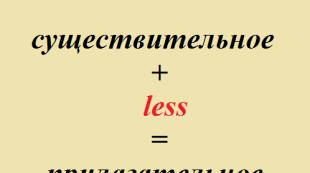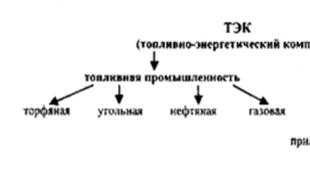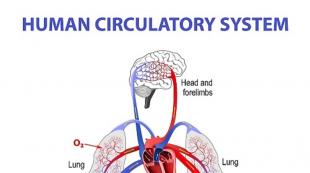Suffixes in English. Suffixes in English are an effective way to expand the vocabulary Form the adjective forget
It is not always possible to use a dictionary or just quickly remember the right word. In such situations (and not only in them), knowledge of suffixes and prefixes will help out. So, for example, it corresponds to Russian prefixes bez-, bes-, not-. This is what you need when you need to form a negative word from one that you already know well.
The suffix less in English and its meaning
It is considered to be part of adjectives. If you look in the dictionary, then less is “something insignificant or insignificant”, “a smaller amount”. Usually, less is added to a noun (or to a verb) and thanks to this metamorphosis, an adjective with a negative meaning is formed. So the schema is:

For example, you need to use the word "carefree". You don't know the English equivalent, but you remember the word "care" - "care". It is a noun, that is, you can safely add to care suffix with a negative value and you get what you need - careless(in translation "carefree"). Learn to use the suffix less in English, and you do not have to look into the dictionary once again.
English words with the suffix less. Examples
Pay attention to the following English words with less suffix. Many of them are quite often used in speech. For convenience, the first column contains the nouns from which the new word is formed using less.
|
noun |
adjective |
translations |
|
hope |
hope less |
hope - hopeless |
|
use less |
useful - useless |
|
|
help |
help less |
help - helpless |
|
heart |
heart less |
heart - heartless |
|
fear |
fear less |
fear - fearless |
|
home |
home less |
house - homeless |
|
brain |
brain less |
brain is brainless |
|
harm |
harm less |
harm - harmless |
|
job less |
work - unemployed |
|
|
blame |
blame less |
fault - innocent |
|
shame |
shame less |
shame - shameless |
|
doubt |
doubt less |
doubt - undeniable |
|
love |
love less |
love - unloved |
|
aim less |
Word formation- this is the formation of new words with the help of prefixes, suffixes, addition of bases and other methods. If you know how word formation works in English, understand the meaning of the main prefixes and suffixes, it will be much easier for you to replenish your vocabulary, read, understand English speech, because you will guess the meaning of a huge number of words without a dictionary.
By the way, if you are curious about your vocabulary, I recommend reading this article: From it you will learn simple and interesting ways to determine vocabulary.
There are several ways of word formation, the most important practical value is the formation of words with the help of suffixes and prefixes. We will dwell on it in more detail, we will consider other methods in an overview.
Why do you need to know vocabulary?
The main benefit is that knowing the meanings of prefixes and suffixes greatly increases the number of words you learn when reading and listening (especially when reading). In other words, the passive vocabulary increases.
Take, for example, the verb to use- use. With the help of suffixes, it is formed from:
- Adjective useful- useful.
- Adjective useless- useless.
- Noun usage- usage.
Understanding the meaning of suffixes -ful, -less, -age, you can easily understand all three formed from to use words, even if they didn't know their meaning.
- -ful and -less indicate the presence or absence of quality: from the word care (care,) careful- careful careless- carefree.
- -age forms nouns from verbs: leak(leak) - leakage(a leak), pass(to pass) - passage(pass).
The effect will be especially noticeable when reading, because suffixes and prefixes are easily noticeable in the text, and in oral speech they can simply not be disassembled. In general, understanding of oral speech differs from understanding of the text in that it is not enough to know words and grammar for listening comprehension - you need to have a developed, trained skill of understanding speech by ear. It is developed separately with the help of listening, i.e. listening to live speech,.
And why a passive vocabulary, why not an active one? Prefixes and suffixes are good semantic clues, but English vocabulary is arranged in such a way (like Russian) that not every word can be attached to any affix.
A good example is attachments. in- And un-, having the meaning of negation: able- capable unable- incapable stable- stable, installable- unstable. The prefixes completely coincide in meaning, but when which one needs to be “attached” - this must be remembered. When reading, you can easily understand the meaning of words with in\un-, but in speech you can make a mistake.
However, it's not that scary. I'm sure you'll be understood if you say inable And unstable, confusing prefixes. Speaking in Russian, we do not make such mistakes!
How to study word formation in English
Prefixes and suffixes (collectively called “affixes”) are not the case when you need to sit down at textbooks, cramming the rules, doing exercises one after another. It is enough just to get acquainted with the meaning of the main prefixes and suffixes, see examples.
The tables and mind maps (picture notes) below will help you with this. The tables reveal the meaning of prefixes and suffixes (as far as possible), examples of words, and mind maps are a kind of abstract, a cheat sheet made on the basis of tables.
After reviewing the materials, you will notice that many affixes are similar to Russian and even have a similar meaning. No wonder, because they came to English, Russian and other languages from Latin and Greek, especially for affixes with a scientific connotation: de activate – de activate, anti virus – anti virus, counter balance – against oats, ideal ism - ideal ism. Thanks to these preserved links between languages, word formation in English is given without any problems.
There are different approaches to the classification of word-formation methods; in Russian-language literature, two main methods are usually distinguished: vocabulary and vocabulary.
Word production, in turn, is of four types: conversion, change of place of stress, alternation of sounds and affixation (prefixes and suffixes).

Composition
Composition is the combination of two words or stems into one word. The resulting words are written together or with a hyphen. In Russian, there is also such a way and, by the way, the word “composition” itself is formed by word formation.
By compounding, verbs are formed, (most often),.
Derivation
Derivation is the formation of one word from others. It can happen in four ways:
- Conversion.
- Changing the place of emphasis.
- Sound alternation.
- Affixation.
Conversion
Conversion- this is the transition of a word from one part of speech to another without changing the spelling and sound. It turns out that the word formally remains unchanged, but:
- it turns into another part of speech,
- its meaning changes.
Conversion is a method of word formation characteristic of the English language, thanks to which there are many words in English that do not differ in appearance and sound, but have the meanings of different parts of speech.
For example, nouns and verbs can match:
| Noun | Verb |
|---|---|
| answer (answer) | to answer (answer) |
| hand (hand) | to hand (hand over) |
| place (place) | to place (place) |
| work (work) | to work (work) |
Or adjectives and verbs:
Changing the accent
In this case, the nouns are the same in form as the verbs, but they have a different stress. Usually, the stress falls on the second syllable for the verb, and the first for the noun.
Sound alternation
In this case, verbs and nouns formed from the same root differ in the alternation of the last consonant sound. Usually in a verb it is voiced, and in a noun it is deaf.
For example:
Affixation
Very often words are formed by joining prefixes and suffixes(together they are called affixes).
- Prefixes(prefixes) change the meaning of words, but the word itself does not change into another part of speech. Knowing the most common prefixes, you can guess the meaning of the words formed with their help, if, of course, you know the original word.
- Suffixes serve to form one part of speech from another. Knowing which suffixes are typical for which speech, you will easily understand what part of speech is in front of you, and accordingly, this will make it easier to understand the word.
Prefixes in English
Attachments can be divided into two groups: negative and all.
The most common negative prefixes are: un-, in-, dis-. There are no rules governing which of these prefixes is used to give a negative meaning to a word.
However, if we talk about passive vocabulary, understanding text or speech, then this is not so important: if a word has one of the negative prefixes, then its meaning has been changed to negative or opposite. The tables below show examples of words with these prefixes.

prefix un-
| comfortable - comfortable | uncomfortable - uncomfortable |
| equal - equal | unequal - unequal |
| expected - expected | unexpected - unexpected |
| happy - happy | unhappy - unhappy |
| important - important | unimportant - unimportant |
| known - known | unknown - unknown |
| limited - limited | unlimited - unlimited |
| pleasant - pleasant | unpleasant - unpleasant |
Also un- is attached to verbs to express the opposite action.
| to dress - to dress | to undress - undress |
| to lock - lock | to unlock - unlock |
| to pack - pack | to unpack - unpack |
prefix in-
No rules governing when to use un-, and when in-, although these prefixes do not differ in meaning. An important difference is that in- NOT used in verbs.
Examples:
prefix in- modified in some cases:
- before l becomes il-
- before r becomes ir-
- before m and p becomes im-
prefix dis-
Dis- can express negation or opposite action.
Negation:
Opposite action:
Other negative prefixes
Among other negative prefixes, there are many international, Latin and Greek origins that are also found in Russian.
- a\ab- (without-, not-, a-): abnormal - abnormal, amoral - immoral.
- anti-(anti-, anti-): antivirus - antivirus, antibiotic - antibiotic.
- counter-(counter-, counter-): counterstrike - counterstrike, counter-clockwise - counterclockwise.
- de-(deprive, delete): decode - decode, deformation - disbandment.
- non-(negation, absence): non-stop - non-stop, non-alcoholic - non-alcoholic.
Prefixes with different meanings

| Prefix re- (again, again, again) | |
|---|---|
| to appear - appear | to reappear - reappear |
| to construct - build | to reconstruct - rebuild |
| to read - read | to reread - reread |
| to sell - sell | to resell - resell |
| The prefix mis- (wrong, wrong) | |
| to hear - hear | to mishear - misheard, hear wrong |
| to lead - lead | to mislead - mislead |
| to quote - quote | to misquote - incorrectly quote |
| to understand - understand | to misunderstand - misunderstand |
| Prefixes over- (over, excessively) and under- (under-, not enough) | |
| to estimate - evaluate |
to overestimate - overestimate To underestimate - underestimate |
| to pay - pay |
to overpay - overpay to underpay - underpay |
| The prefixes pre- (before, earlier) and post- (post-, after), are often written with a hyphen | |
| revolutionary - revolutionary |
pre-revolutionary - pre-revolutionary post-revolutionary - post-revolutionary |
| war - war |
pre-war - pre-war post-war - post-war |
| The prefix co- (collaboration, community of action), often written with a hyphen | |
| author - author | co-author - co-author |
| existence - existence | co-existence - coexistence |
| operation - operation | co-operation - cooperation, assistance |
| Prefix inter- (between, among, mutually) | |
| national - national | international - international |
| action - action | interaction |
| town - city | intertown - intercity |
| The prefix ex- (ex-, former), is written with a hyphen | |
| husband - husband | ex-husband - ex-husband |
| president - president | ex-president - ex-president |
| Prefix sub- (sub-, sub-) | |
| marine - marine | submarine - underwater |
| section - section | subsection - subsection |
| The prefix ultra- (ultra-, super-), written with a hyphen | |
| microscopic - microscopic | ultramicroscopic - ultramicroscopic |
| violet - purple | ultra-violet - ultraviolet |
| Prefix en- (to do something) | |
| circle - circle | encircle - surround (make a circle) |
| large - large | enlarge - increase (make more) |
| slave - slave | enslave - to enslave (to make a slave) |
Notes:
- In modern English there are words with inseparable prefixes, they include the prefixes listed in the table above, but by separating them, we will not get an independent word. For example: reduce(reduce) discuss(discuss), pre pare(prepare). In fact, these prefixes are no longer prefixes at all. Once upon a time, they have grown to the roots of words, now uncommon and modified, and gradually they themselves became part of the root of the word. For example, in the word prepare(prepare) pre- this is no longer a prefix, but part of the root of the word.
- In colloquial speech, the word “ex”- it exactly corresponds to our “ex, ex” and has the meaning “ex-husband / boyfriend, ex-wife / girlfriend”: My ex texted me - My ex texted me.
Suffixes in English
Suffixes are indicators of parts of speech in English, respectively, they can be divided into three groups: suffixes of nouns, adjectives and verbs. There is not much to say about adverbs, in most cases they are formed with only one suffix -ly(quick - quickly), there is a small note about them.
Noun suffixes
With the help of suffixes, nouns are formed, denoting persons, and abstract nouns, denoting broad or generalized concepts.

Nouns denoting persons
| Suffixes -er, -or - are attached to verbs to indicate the character | |
|---|---|
| to buy - buy | buyer - buyer |
| to direct - lead | director - leader |
| to teach - to teach | teacher - teacher |
| to work - work | worker - worker |
| The suffixes -ism and -ist correspond to the suffixes -izm and -ist in Russian, denote ideologies, political or scientific directions and their adherents | |
| idealist | idealist |
| terrorist | terrorist |
| materialism | materialism |
| The suffix -ee is used to designate the person to whom the action is directed. | |
| to address - address | addressee - addressee |
| to employ - hire | employee - employee (hired employee) |
| to pay - pay | payee - payee |
| The suffix -ian is used to indicate nationality | |
| Russian | Russian |
| Ukrainian | Ukrainian |
| Bulgarian | Bulgarian |
| Norwegian | Norwegian |
abstract nouns
| The suffix -age usually forms nouns from verbs | |
|---|---|
| to leak - to leak | leakage |
| to marry - marry, get married | marriage - marriage |
| Suffixes -ance, -ence - with their help, nouns are formed from adjectives with suffixes -ant, -ent | |
| important - important | importance - importance |
| different - different | difference - difference |
| resistant - resistant | resistance - resistance |
| The suffix -dom forms nouns from adjectives and other nouns | |
| free - free | freedom - freedom |
| king - king | kingdom - kingdom |
| The suffix -hood usually forms nouns from other nouns | |
| brother - brother | brotherhood - brotherhood |
| child - child | childhood - childhood |
| neighbor - neighbor | neighborhood - neighborhood |
| The suffixes -ion, -ation, -sion, -ssion form nouns from verbs, while sometimes the pronunciation or spelling changes | |
| to collect - collect | collection - collection |
| to combine - combine | combination - combination |
| to transmit - transmit | transmission - transmission |
| The suffix -ment forms nouns from verbs | |
| to agree - agree | agreement |
| to develop - develop | development - development |
| The suffix -ness forms nouns from adjectives | |
| dark - dark | darkness - darkness |
| kind - kind | kindness - kindness |
| weak - weak | weakness - weakness |
| The suffix -ship forms nouns from other nouns | |
| friend - friend | friendship - friendship |
| leader - leader | leadership - leadership |
| The suffix -ure forms nouns from verbs | |
| to please - give pleasure | pleasure - pleasure |
| to press - press | pressure - pressure |
| to seize - capture | seizure - capture |
Adjective suffixes

| The suffixes -able, -ible express the ability to be exposed, in Russian there is a similar “-able”, “-ive”, “-obny” | |
|---|---|
| to change - change | changeable - changeable, changeable |
| to eat - eat | eatable - edible |
| to walk - to go | walkable - passable |
| to convert - convert, convert | convertable - reversible, convertible |
| The suffix -al forms adjectives from nouns (cf. in Russian: -al) | |
| center - center | central - central |
| culture - culture | cultural - cultural |
| form - form | formal - formal |
| Suffixes -ant, -ent form adjectives from verbs (nouns with -ance, -ence correspond to these adjectives) | |
| to differ - differ | different - different (difference - difference) |
| to resist - resist | resistant - resistant (resistance - resistance) |
| The suffixes -ful form adjectives from nouns and signify the presence of a quality. (opposite of -less) | |
| beauty - beauty | beautiful - beautiful |
| doubt - doubt | doubtful - doubtful |
| use - benefit | useful - useful |
| The suffix -ish forms adjectives with the following meanings: a) nationality, b) a weak degree of quality (as in Russian -ovat, -evat) | |
| scott - scottish | scottish - scottish |
| swede - swede | swedish - Swedish |
| red - red | reddish - reddish |
| brown - brown | brownish - brownish |
| The suffix -ive forms adjectives from verbs and nouns (as in Russian -ivny, -ivnaya) | |
| to act - act | active - active |
| effect - effect, action | effective - valid |
| to talk - talk | talkative - talkative |
| The suffix -less forms adjectives from a noun and means lack of quality (the opposite of -ful) | |
| hope - hope | hopeless - hopeless |
| use - benefit | useless - useless |
| home - house | homeless - homeless |
| The suffix -ous forms adjectives from nouns | |
| courage - courage | courageous - courageous |
| danger - danger | dangerous - dangerous |
| glory - glory | glorious - glorious |
| The suffix -y forms adjectives from nouns (mostly related to the weather) | |
| cloud - cloud | cloudy - cloudy |
| dirt - dirt | dirty - dirty |
| fog - fog | foggy - foggy |
| rain - rain | rainy - rainy |
| sun - the sun | sunny - sunny |
Verb suffixes

| The suffix -en gives meanings: do, become, become, forms verbs from adjectives and nouns | |
|---|---|
| sharp - sharp | sharpen - to sharpen |
| short - short | shorten - to shorten |
| strength - strength | strengthen - strengthen |
| wide - wide | widen - expand |
| The suffix -fy usually forms verbs from adjectives, less often from nouns | |
| false - fake | to falsify - falsify |
| glory - glory | to glorify - glorify |
| simple - simple | to simplify - simplify |
| pure - pure | to purify - clean |
| The suffix -ize usually forms verbs from nouns | |
| character - character | to characterize - to characterize |
| crystal - crystal | to crystallize - crystallize |
| sympathy - sympathy | to sympathize - sympathize |
Notes:
- A few words need to be said about adverbs. Everything is extremely simple here: in the vast majority of cases, derivative adverbs are formed from adjectives (sometimes from numerals and nouns) using the suffix -ly: wise(wise) - wisely(wisely) slow(slow) - slowly(slowly), etc. Suffixes are much less common -wise(clockwise - clockwise), -ward(s)(forward\backward - forward\back), -ways(sideways - sideways).
- As in the case of prefixes, in English there are words with inseparable suffixes, but in fact these are not suffixes, but part of the root, once formed from the suffix (in the process of historical changes in the language). These words are indivisible and are not recognized as words with suffixes, for example: courage(courage), station(station), document(document), loyal(devotee) possible(possible) and others.
- As in Russian, English words can be formed not only by prefixes and suffixes, but also by a combined (attachment-suffix) method. For example: walk(walk) - walkable(passable) - unwalkable(impassable). In this case, the value of both the suffix and the prefix is added to the original word.

Friends! Now I am not engaged in tutoring, but if you need a teacher, I recommend this wonderful site - there are native (and non-native) teachers there 👅 for all occasions and for every pocket 🙂 I myself have gone through more than 50 lessons with teachers that I found there !
It is no secret that one word can be the progenitor of a whole branch of related expressions. The formation of new lexemes is carried out in different ways: by adding new parts, by conversion, that is, by transferring an unchanged stem to another grammatical section, or by merging two words into one. Knowing these methods not only makes it easier to understand the context of an unfamiliar word, but also expands the possibilities of the student's vocabulary. Today we will study one of the methods, considering its application to the popular part of speech. So, the topic of the material is suffixes in adjectives in English. Let's consider ways of transforming various parts of speech into definitions and give examples.
Suffixes in adjectives in English - table
Adjectives are designed to express characteristics, properties, qualities and signs, and in their duty most often accompany nouns. It is not surprising that many definitions owe their origin to the same-root words of the noun class. We also note that verbs also have a small share of the suffix formation of adjectives, but the table below will tell you more about all this. In it, we placed the suffixes of adjectives in English, according to their correspondence to the parts of speech that formed a new word. In addition, each suffix is provided with a personal meaning and examples of word formation. Let's start studying.
| English adjective suffixes | |||
| Class | Suffix | Meaning | Examples |
| Nouns. The morphemes given in this section can only be attached to the specified part of speech. |
-y | Formation of qualitative characteristics from the original form of the word. | cream - creamy; cream - cream; health - healthy; health is healthy; dirt - dirty; fun - funny; wind - windy; |
| -al | Passing a value as a feature. | normal - normal; norm -normal; globe-global; globe, world - global; centre-central; center - central; forma - formal; form - formal; emotion - emotional; emotion - emotional; |
|
| -en | Material indication. | wool - woolen; wool - woolen; silk - silken; silk - silk; lead-leaden; lead - lead; gold - golden; gold - gold; wood - wooden; wood - wooden; |
|
| -ful | Expression of the fullness of qualities, perfection. | skill - skilful; skill - skillful; beauty - beautiful; beauty - beautiful; help - helpful; help - helping; color - colorful; color - color; success-successful; success - successful; |
|
| -ous | An analogue of the previous ful, used only for words of French origin. | fame - famous; fame - famous; mountain - mountainous; mountain - mountainous; ambition - ambitious; ambition - ambitious; vigor - vigorous; strength - strong; victory - victorious; victory - victorious; |
|
| —less | Denial of the presence of this quality. | use - useless; useful - useless; doubt - doubtless; doubt - doubtless; color-colorless; color - colorless; job - jobless; work - unemployed; home - homeless; house - homeless; |
|
|
-an; -ese; -ian; |
Formation of definitions from proper names, geographical names, designations of nationalities and languages, etc. | Japan-Japanese; Japan - Japanese; America-American: America - American; Malaysia–Malaysian; Malaysia - Malaysian; Dickens-Dickensian; Dickens - Dickensian; Mexico–Mexican; Mexico – Mexican; China-Chinese; China -Chinese (language); |
|
|
-ic; -ical; -tic; |
Production quality, characteristic. | politics - political; policy -political; energy - energetic; energy - energetic; critic - critical; criticism - critical; romance - romantic; romance - romantic; geography - geographical; geography - geographic; patriot - patriotic; patriot - patriotic; electron - electronic electronics - electronic; |
|
| -like | Likeness, resemblance. | child - childlike; child -childish, childish; wave-wavelike; wave -wavy; wife - wifelike; the wife is like a wife, the habits of a wife; bird - bird-like; bird -similaronbird; |
|
|
-ite -ate |
A sign transferred to an object / person. | fortune-fortunate; luck - lucky; Israel - Israelite; Israel - Israeli; passion - passionate; passion - passionate; favor - favorite; favor - beloved, singled out from all; |
|
| -ly | Feature, quality. | week-weekly; week - weekly; the man is courageous; friend - friendly; friend - friendly; mother - motherly; mother - maternal; life - lively; life, action - active; |
|
| Verbs. The suffixes of this section are unique to the category of verbs. |
-ing; |
The characteristic is expressed by a real participle. | to bloom - blooming; blossom - blooming; to drive - driving; driving a car - driving a car; to write - writing; write - writing; to interest - interesting; be interested - interesting; |
| Adjectives. Here are suffixes that help form degrees of comparison. |
-er; -est; |
Comparison, superiority. | clever - cleverer; smart - smarter; fast - faster; fast - faster; simple - the simplest; simple - the simplest; happy - the happiest; happy - the happiest; |
|
Summary combinations. This group contains suffixes in adjectives in English, which can refer to several parts of speech. |
|||
| Ch. + n. |
-ent; -ant; |
The presence of qualities transferred from the main word. | to differ - different; distinguish -distinguished; importance - important; importance - important; to please - pleasant; to please - pleasant; intelligence - intelligent; intelligentsia - intelligent; |
|
-able; -ible; |
The attribute conveys the ability to perform an action; the presence of qualities and properties. | response - responsible; responsibility - responsible; to predict - predictable; predict - predictable; comfort - comfortable; comfort - comfortable; fashion - fashionable; fashion - fashionable; to convert - convertible; convert - convertible; |
|
| Ex. + adj. | -ish; | Nouns express belonging, and adjectives express a diminutive degree of qualities. | child - childish; child - children's; yellow-yellowish; yellow - yellowish; Poland-Polish; Poland – Polish; fool - foolish; stupid - stupid; |
| Main + noun + adj. |
-ary; -ory; |
characteristic qualities. | imagine - imaginary; imagination - imaginary; second - secondary; second - secondary; element - elementary; element -elementary; |
| -ed; | The ability to perceive certain actions or properties (passive participle). | to educate well - well-educated; give a good education - well-educated; bronze - bronzed; bronze - bronze; talent - talented; talent - talented; |
|
|
-ive; -ative; |
The presence of a certain trait. | to talk - talkative; talk - talkative; sport - sportive; sports - sports; impulse - impulsive; impulse - impulsive; |
|
We have learned all possible suffixes in various adjectives in English! See you soon!
Views: 324
In this article from the series "" we will consider 10 main adjective suffixes in English: -ful, -less, -ous, -al, -y, -ic, -ish, -able, -ive, -ent (10), and also devote considerable time to working out these suffixes. Word-building exercises will not only help you prepare for English exams in the form of the OGE and the Unified State Examination, but will expand your vocabulary and help develop your language guess.
Dear site visitors! Copying this article for the purpose of placing it on other resources is prohibited. © site, 2015
Derivation of adjectives
1. Suffixes of adjectives formed from nouns
noun + Ʌ = adj
- -ful (expresses the presence of quality; beautiful, colorful)
- -less (expresses lack of quality: colourless, useless)
- -ous (words of French origin, analogue of ful: courageous, famous)
- -al (central, formal)
- -y (cloudy, dirty)
- -ic (poetic, domestic)
- -ish (expresses nationality: Scottish, English, as well as a weak degree of quality: brownish - brownish, reddish - reddish)
The exception is the suffix -ly, since this suffix serves to form adverbs. However, there are a number of adjectives and fairly common ones that are formed using this suffix, for example: friendly(friendly), lovely(charming), lively(active, active)
2. Suffixes of adjectives formed from verbs
verb + Ʌ = adj
- -able / -ible (expresses the ability to undergo the action indicated by the verb: to change - changeable (change - changeable); to eat - eatable (eat - edible)
- -ive (active, talkative)
- -ent/-ant (different, important)
Note that the vowel in the adjective suffix is - e nt/- a nt is the same as in the noun suffix - e nce/- a nce and vice versa, that is:
differ ent- differ ence
import ant-import ance
Suffixes of adjectives in English. Exercises
Exercise 1. Translate into Russian.
The suffix -ful means "be full of" e.g. beautiful means "be full of" beauty.
- She was very grateful for our help.
- She likes colorful clothes.
- She is a very forgetful girl.
- We are not sure that our team will win, but we are hopeful.
- They lived a peaceful, happy life.
- He was always as helpful as possible.
Exercise 2.1. Translate into Russian.
The suffix -less means "without" e.g. hopeless means "without" hope.
a moonless night, a cloudless sky, a noiseless machine, numberless heroes, a motherless girl, a heartless woman, a homeless cat, a leafless tree, a nameless author, a sunless room, a endless war, a lifeless body, a colorless liquid , a friendless child, a sleepless night, careless people, a doubtless victory
Exercise 2.2. Translate into English.
Cloudless sky, helpless child, silent car, countless heroes, lifeless body, carefree child, heartless woman, stray cat, tree without leaves, nameless author, room without sun, endless war, colorless liquid. It was a moonless night. He looked tired after a sleepless night.
Exercise 3
The suffix- ous means "ful of" which comes from French e.g. danger + ous = dangerous
A. Form adjectives from nouns and translate them.
SAMPLE nerve + ous = nervous (nerve - nervous)
fame - ..., humour - ..., courage - ..., glory (y->i) - ..., poison - ..., space (i) - ...
IN. Use the words in the sentences.
- We don't know if these chemicals are ____________ to people.
- She became ____________as a writer.
- I like to read ___________stories.
- There are a lot of _______ snakes in the jungle.
- It was a _________victory.
- He was a ____________soldier.
- They liked the _______________rooms in their new house.
Exercise 4 -y.
A. Translate into English.
windy day, sunny weather, cloudy sky, sleepy child, dreamy girl, icy wind, healthy food
B. Form adjectives from the nouns and translate them.
SAMPLE swamp - swampy (swamp - swampy)
sand - ... , rock - ... , juice - ... , grass - ... , star(r) - ... , bone - ... , skin(n) - ..., water- ... , fog (g) - ..., swamp - ...
C. Put the adjectives from B into this sentences to make them complete.
- This … land is very good for farming. Cows and sheep can feed here all the year round.
- Peter, eat some more roast beef. You should eat more: you have grown so … (2 variants)!
- On such … mornings it’s very difficult to drive, as you can’t see the road clearly.
- These are … apples. I like them most of all.
- My little brother never eats fish if it is ... .
- Holidaymakers love the … beaches in the south of Australia.
- Why does this coffee taste so…?
- The picture shows the … mountains of Scotland.
- The sky is unusually … tonight.
- … places have a lot of water in all seasons.
Exercise 5 Translate into Russian the adjectives, ending with the suffix — ic.
gigantic hound, scientific expedition, domestic animal, academic year, Olympic games, thematic collection, basic knowledge
Exercise 6 Make up adjectives with the help of suffix -al and translate them.
SAMPLE music - musical (music - musical)
industry - ..., culture - ..., region - ..., tradition - ..., nature - ..., nation - ..., agriculture - ..., comic - ...
Exercise 7 Nationality suffixes
SAMPLE Britain-British
Scotland - ..., Spain - ..., Sweden - ..., Finland - ..., Denmark - ..., Poland - ..., Turkey - ...
SAMPLE
America - ..., Australia - .., Canada - ..., Hungary - ..., Belgium - ..., Egypt - ..., Italy - ..., Europe - ...
SAMPLE Japan–Japanese
China - ..., Portugal - ...
Mind: Germany-German, France-French, Holland-Dutch, Greece-Greek
Exercise 8 – able.
Suffix able has the value "can": movable means can move- can be moved (moveable)
A. Form the words with the suffix – able.
move - .., count - ..., eat - ..., drink - ..., comfort - ..., imagine - ... , break - ... , read - ... , respect - ...., forget - ..., believe - ...
B. Use the words in the sentences:
- Though the cup is made of thin glass it is not ……….(break).
- She thought of all names ………to guess the name of their new classmate. (imagined).
- Everybody respects him. He is very…….. (respect).
- I can't read the book. It is not……(read).
- The nouns are divided into …………. and un…………… (count).
Exercise 9 Form the words with the suffix –ive.
create - ... , impress - ... , progress - ..., act - ... , mass - ... , impulse - ...
Exercise 10 Read the adjectives and spell the suffixes used in forming them.
SAMPLE changeable— The adjective changeabl e is formed with the help of the suffix -able.
successful, cloudless, collective, central, comic, satirical, dangerous, faultless, misty, courageous, aggressive, national, breakable
Exercise 11 Translate these combinations; say what words the adjectives are formed from.
a washable shirt, a skilful worker, democratic forces, the postal service, groundless suspicions, a humorous story, a gloomy scene, salty ham, professional interest, peaceful labor, a noiseless machine, a courageous soldier, a lucky ticket, a continental climate , a dusty road.
Exercise 12 Learn them by heart

B. Listen to the adjectives and translate them by ear.
Word formation in English (repetition)
Noun suffixes. Repetition
Exercise 13 Form nouns from these adjectives using the suffixes from the table.

able, near, distant, long, wide, strong, wise, kind, electric, short, white, probable, persistent (stubborn), dependent, insistent (persistent), indifferent (indifferent), unstable (unstable), patient, responsible, important, stupid, curious
That's all for now! I will be glad if my article is useful to you and you share the link on social networks!
Sources: exercises taken from various manuals, partially redone and modified. In particular, the textbooks "English language grades 5-11" were used, the authors Afanasyeva O.V., Mikheeva I.V.
There are several ways to form new words through suffixes and prefixes, compounding or conversion.
What is a suffix? Suffix- this is a significant part of the word, which is located after the root and usually serves to form new words. The peculiarity of suffixes is that with their help we can form new words and even change parts of speech. Suffixes can be added to both simple words and derivatives. They can be attached to nouns, adjectives and verbs, . For example:
verb: to differ ["dıfə] to differ ->
adj.: natural ->
creatures: dock dock ->
What is a prefix? Prefix- a word-forming particle that is used at the beginning of the original word. Prefixes usually form words that are the same as the grammatical category of the original word. They perform mainly a semantic function. There are a huge number of prefixes in English. For example:
verb: to cover ->
adj.: usual usual ->
First of all, learn the prefixes ( dis-, un-, re-) and suffixes ( -ly, -ment, -ful, -less).
Composition
Compounding is the formation of a new word from two or more words. In Russian, when combining two words into one, the connecting vowel o or e is used (plumbing, vacuum cleaner, thick-walled). In English, two words are connected to each other directly, and the stress usually falls on the first word. For example
handbook ["hændbʋk] - hand (hand) + book (book) = directory
something ["sʌmθıŋ] - some (some) + thing (thing) = something
to whitewash ["waıtwɒʃ] - white (white) + wash (wash) = whiten.
Compound words are usually written together, but sometimes with a hyphen, for example: water (water) + way (way) water-way (water way).
Conversion
Conversion is a way of forming new words, according to which another part of speech is formed from one part of speech without any changes in the external form of the word. The most common conversion model is: noun → verb, for example: a test - test → to test - test, a check - check → to check - check.
When converting two- and polysyllabic nouns that have stress on the first or second syllable, in verbs, the stress is transferred to the last syllable. For example:
export ["ekspɔ:t] export -> to export
progress ["prəʋ (g) rəs] progress -> to progress progress.
A common case of conversion is the transition of an adjective into a noun. For example:
international -> the International [,ıntə(:)"næʃənl] International
intellectual -> an intellectual [,ıntı "lektjʋəl] intellectual
Word formation through suffixes and prefixes
Word formation by adding suffixes and prefixes is the most productive way. Almost every line of the text contains derivative words. Recall what a suffix and prefix are:
suffix- a word-forming particle at the end of the original word. Suffixes can be added to both simple words and derivatives. They can be attached to nouns, adjectives and verbs, while forming new words of the same or another grammatical category. For example:
verb: to differ ["dıfə] differ -> adjective: different ["dıfr(ə)nt] other
adj.: natural -> adverb: naturally ["nætʃrəlı] naturally
creatures: dock dock -> creatures: docker ["dɒkə] docker;
prefix- a word-forming particle that is used at the beginning of the original word. Prefixes usually form words that are the same as the grammatical category of the original word. They perform mainly a semantic function. For example
verb: to cover -> verb: to discover
adj.: usual usual -> adj.: unusual [ʌn "jʋ:ʒʋəl] unusual.
Adverb suffix -ly
Most adverbs are formed by adding suffixes to adjectives and nouns. The most productive among them is the suffix -lu, with the help of which many adverbs are formed from adjectives, and the meaning of the original adjective is almost always preserved. For example
brief brief - briefly ["brı: flı] briefly
equal ["(ı:)kw(ə)l] equal - equally ["(ı:)kwəlı] equal, equally
absolute ["æbs (ə) lʋ: t] full, absolute - absolutely absolutely
violent ["vaıələnt] violent, furious - violently violently, violently.
Adverb suffixes -wise, -ward and prefix a-
Suffix -wise in combination with nouns and adjectives forms adverbs indicating that the action is performed in the manner indicated by the stem. When translating such adverbs, you can use words in a way, in a way.
Suffix -ward(s) in combination with nouns, adverbs, adjectives and prepositions, forms adverbs that indicate in which direction an action is performed.
Note that adverbs formed with the -ward suffix may or may not have an -s ending, while an adjective with this suffix never ends in -s, compare: The lift went downward(s).- The elevator went down. But: The downward movement of the lift…
prefix a- in combination with adjectives and nouns forms adverbs.
Noun suffixes -ity, -ing, -hood, -ment, -ness
Suffix -ity(spelling options -ety, -iety) forms abstract nouns with the meaning of state, quality, condition. Suffix - ity corresponds to the suffix -ost. For example:
able (capable) - ability [ə "bılıtı] ability
active (active) - activity [æk "tıvıtı] activity, activity
valid (valid, justified, effective) - validity effectiveness, justice, legality, validity.
Suffix -hood forms nouns with the meaning "state, position, quality". For example:
child (child) - childhood ["tʃaıldhʋd] childhood
man (male) - manhood ["mænhʋd] masculinity.
Suffix -ment forms nouns denoting action. Some words with this suffix acquire value of a set of objects. For example: equipment [ı "kwıpmənt] equipment.
to move (move) - movement ["mʋ: vmənt] - movement.
to environ [ɪn "vaɪər (ə) n] surround - environment [ɪn" vaɪər (ə) nmənt] environment, environment
to commit - commitment commitment
to argue ["ɑːgjuː] argue, argue, prove - argument ["ɑːgjəmənt] argument, argument
Suffix -ness forms nouns with the meaning "state, quality". For example:
dark dark - darkness ["dɑ: knıs] darkness
good good - goodness ["gʋdnıs] kindness
great great - greatness ["greıtnıs] greatness.
happy happy - happiness ["hæpɪnəs] happiness
polite polite, amiable, courteous - politeness politeness, courtesy, courtesy
fair fair, decent, honest, legal - fairness ["feənəs] justice, honesty, legality
Adjective suffixes -ful, -less, -ive, -ic, -al, -ous
Suffix -ful forms adjectives on the basis of nouns with the meaning "having (fully) the quality expressed by the stem". For example:
peace peace - peaceful ["piːsf(ə)l], [-ful] quiet, calm, peaceful
hope hope - hopeful hoping;
care care - careful caring, thorough;
beauty beauty - beautiful ["bjʋ: tıfʋl] beautiful, beautiful;
help help - helpful ["helpfʋl] useful.
Suffix -less forms adjectives with the opposite meaning: “devoid of the quality expressed by the stem”, and corresponds to the Russian prefix bez-, not-,. For example:
doubt doubt - doubtless ["daʋtlıs] undoubted;
homeless ["həumləs] - homeless
hopeless - hopeless;
helpless - helpless;
careless - carefree;
use use, meaning, use, use, use - useless ["juːsləs] useless; worthless
Suffix -ive forms adjectives based on verbs and nouns and corresponds to the Russian suffix -iv-. For example:
to create to create - creative creative, creative;
to act act -active ["æktıv] active;
to impress to impress, to amaze - impressive [ım "presıv] impressive, expressive;
an impulse impulse - impulsive [ım "pʌlsıv] impulsive;
a mass mass - massive ["mæsıv] massive.
Suffix -ic forms adjectives with meanings:
having the composition or structure of the base: atom atom -atomic [ə "tɒmık] atomic;
resembling someone: Homeric - Homeric, Homeric; Byronic - Byronic.
Suffix -al forms a large number of adjectives with the meaning: having a nature, referring to what is expressed by the stem, For example:
Suffix -ous indicates a trait or quality, as well as a chemical composition. For example:
sulphurous - sulphurous
an anonym anonymous - anonymous (anonymous)
dangerous - dangerous
various - various
a poisonous tree - a poisonous tree
Adjective suffixes -able (-ible), -ent, -ant, -ate, -y, -ed
Adjective suffixes -able (-ible), -ent, -ant, -ate, -y, -ed
Suffix -able (-ible) most often forms adjectives from verbs, the Russian equivalent of which is adjectives with the suffix -imy (doable as opposed to performed). Such adjectives can also be translated by a subordinate clause, starting with the words which can + the infinitive of the original verb. It should be remembered that the stress never falls on the suffix. For example:
to detect - detectable to detect, discoverable (not: discoverable);
to observe (observe) - observable [əb "zɜ: vəbl] which can be observed (and not: observed)
memorable ["mem(ə) rəbl] memorable, unforgettable
They took measures justifiable under these conditions. They took measures that could be justified under these conditions. We consider events observable in all the situations. - We consider (only) the events that can be observed in all these situations.
If such an adjective is after the linking verb be, then when translating the word that is omitted and only possible + the infinitive of the original verb remains in the sentence, for example: It is regrettable that… It can be regretted that… The value is negligible. This value can be neglected.
If verb ends in e, then when the suffixes -able, -ible are attached, this letter (e) disappears, for example: to receive receive - receivable that can be received. If verb ends in -u, then when forming an adjective, y changes to i, for example: rely to rely (on) - reliable on which you can rely
Suffix -ent occurs in adjectives with different meanings. For example:
current ["kʌr(ə)nt] - current, modern;
evident ["evıd (ə) nt] - obvious.
confident ["kɔnfɪd (ə) nt] - confident
Suffix -ant forms adjectives that characterize persons or things as having or exhibiting certain qualities. For example:
observant [əb "zɜ: v (ə) nt] - observant
relevant ["relıvənt] - relevant, relevant (the suffix -ant can also form nouns).
Suffix -ate found in adjectives with a variety of meanings, for example: moderate ["mɒdəreıt] - moderate, sustained; adequate ["ædıkwıt] - appropriate, adequate. (The suffix -ate can also form verbs).
Suffix -y forms adjectives with the meaning "having the quality of that which is indicated by the base". For example:
dirt (dirt) - dirty ["dɜ: tı] dirty
fun (joke, fun) - funny ["fʌnı] cheerful, funny
pretty ["prıtı] -pretty; (the suffix -y can also form nouns).
Suffix -ed forms adjectives: with the meaning of any sign or possession of something, for example: property (property) - propertied ["prɒpətıd] possessing property; denoting any form, for example: arch (arch) - arched ["ɑ: tʃt] curved; denoting a character or state, for example: educated ["edjʋ: keıtıd] educated. Endings ed / ing. The suffix -ed is often found in compound adjectives, for example: thick-walled [,θık"wɔ: ld] - thick-walled, many-sided [ "menı" saıdıd] - multilateral, ill-informed ["ılın" fɔ:md] - incorrectly informed.
Prefixes de-, dis-, mis-, pre-, fore-, under-, over-
Prefixes de-, dis-, mis-, pre-, fore-, under-, over-
The prefix de- usually means to deprive what is indicated by the base, to remove, to remove what is indicated by the base (in Russian, this prefix also exists: degassing), for example:
to code encode - to decode decode, decrypt;
declassed ["dı:"klɑ:st] - declassed. A number of verbs with de- prefixes, formed from nouns denoting a mode of transport, convey the meaning of “get off, disembark from”, for example: to detrain (train - train) - get off the train.
dis prefix- usually expresses the opposite, opposite action or denial. Sometimes he conveys the meaning to remove, deprive, get rid of what is indicated by the basis (Russian: disqualification). For example:
to allow [ə"laʋ] allow - to disallow ["dısə"laʋ] prohibit
to appear [ə"pıə] to appear - to disappear [,dısə"pıə] to disappear.
to continue continue - to discontinue stop, interrupt
The prefix mis- expresses the error of the action. For example:
to take to take - to mistake to make a mistake (take it wrong)
To apply [ə "plaı] to apply - to misapply misuse, abuse.
The pre- and fore- prefixes usually express precedence. In Russian translation, you can use words in advance, previously. For example:
to see to see - to foresee to foresee
To show to show - to foreshow to foreshadow to heat to preheat - to preheat to preheat.
The pre- prefix can be used with many verbs that you want to give precedence to.
The prefix under- ["ʌndə] forms verbs with meanings:
This prefix corresponds to the Russian prefix under-, for example: to do do - underdone ["ʌndə" dʋ:] unfinished. The over- prefix forms verbs with meanings:
Movements over something, for example: to leap jump - to overleap [,əʋvə "lı: p] jump over; excess (actions, states), beyond the norm, for example: to load load - to overload ["əʋvə" ləʋd] load over norms, overload.
It should be noted that the Russian prefix conveys not only the meaning above the norm (overload), but also another meaning: reload into another car. Therefore, when translating verbs with the prefix over-, one must be careful
Negative prefixes in- (im-,il-, ir-), un-, non- prefixes post-, super-
limitable (which can be limited) - illimitable [ı "lımıtəbl] unlimited.cage (cell) - to encage [ın "keıdʒ] to put in a cage;
crypt (crypt, cache) - to encrypt encrypt
bring to the state indicated by the base. For example:
large (large) - to enlarge [ın "lɑ: dʒ] increase (sya)
to enliven [ın "laıvən] - revitalize, make more interesting
Prefix re- usually expresses the repetition of an action, and sometimes the Russian prefix re- corresponds to it. English verbs with the re- prefix usually have two stresses: on the prefix and on the stem. For example:
to make (to do) - to remake ["rı:" meık] redo
to create (create) - to recreate
However, we must remember that the Russian prefix pere- does not always correspond to the English prefix re-, since it often conveys the meaning of exceeding the norm, for example, to oversalt. Therefore, when translating words with the re- prefix, use the words again, again, again, etc. ).
prefix be- means: to make it as the basis indicates, or to give a sign or quality expressed by the basis, for example: little (small) - to belittle to belittle, belittle.









